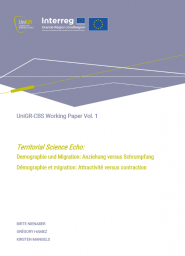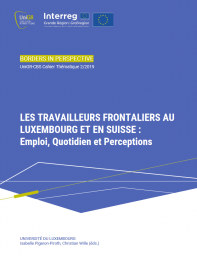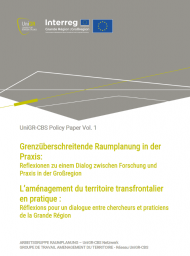Working Paper Vol. 1

The working paper examines the theme of demography and migration and addresses the challenges of spatial development in the Greater Region. It focuses in particular on cross-border residential mobility on the borders of the Grand Duchy, the ageing population and the protection of health services in rural areas.


